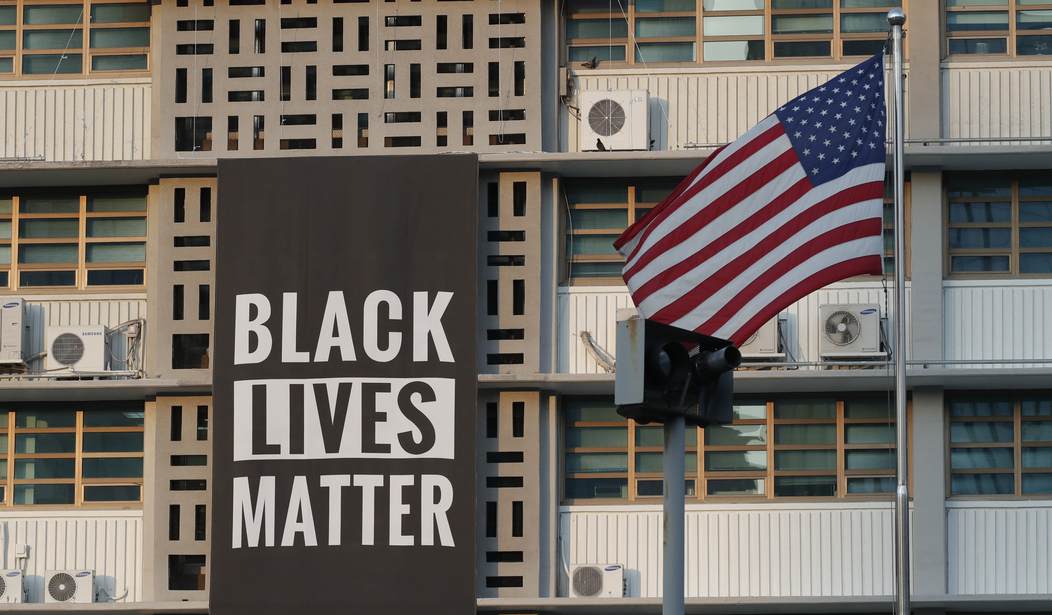At long last, justice has come: the Chicago suburb of Evanston, Ill., has begun paying reparations to black residents. So now that historic wrongs have been righted, a new era of racial harmony will dawn in northern Illinois, right? Wrong: one local “civil rights activist” is already complaining that the payouts are too meager and more money is needed. Despite the discontent, however, supporters of the scheme are optimistic, with one even terming it “a test run for the whole country.” Yeah, that’s the problem.
The Wall Street Journal reported Monday that Evanston will shell out $25,000 to around 140 black residents of Evanston by the end of this year. This is just a small part of $10 million in reparations payments that the city approved in 2019, so lots more free money is coming. Meanwhile, the party has already begun for sixteen Evanston residents who have already received their dough and are now experiencing the bliss of ancient injustices redressed. These people have been suffering from the racism of the white supremacists in Evanston for a long time; a Thursday report in Slay noted that “individuals must have been at least 18 years old and resided in the city between 1919 and 1969 to qualify for the payments.”
One would think that Evanston would be ringing with hosannas for this dawning of Democrat vote bribery, uh, that is, racial justice, but somehow the joy of equity is still proving to be elusive, at least for some Evanstonians. Alleged civil rights activist Bennett Johnson, according to Slay, is not satisfied at all. He complained about the fact that the city set 1969 as the cutoff year, saying it was “totally arbitrary”; however, that was the year that Evanston passed a fair housing law. The righteous Johnson claimed that black Americans in Evanston continued to be “discriminated” against and “hurt,” and so presumably the payments should extend far beyond 1969.
Slay noted that Johnson “also contended that the payments were not enough.” He said angrily: “I believe that [Evanston is] doing the same thing that we’ve done in the past, downgrading the ability of black people to do things for themselves.” Now wait a minute, Mr. Johnson. Isn’t that exactly what reparations do: downgrade the ability of black people to do things for themselves? Isn’t the very premise of the reparations frenzy the idea that black people have been simply unable to overcome all the racist roadblocks that Whitey has fiendishly put in their way?
Doesn’t the idea of reparations also assume that these roadblocks have remained in place long after the passage of the Civil Rights Act of 1964, via innumerable structures of systemic racism that are so insidiously subtle that they can only be discerned by highly-paid instructors in Critical Race Theory? Isn’t the idea of reparations predicated on the assumption that black people can’t do things for themselves and that this is Whitey’s fault, and so Whitey needs to give black people a special boost in the form of a generous cash payout?
Yet Johnson insists: “We could realize that if we don’t let black people control this, we [are] still doing the same thing that we’ve done in the past.” Well, in a certain sense, we are indeed doing the same thing we’ve done in the past, or at least Evanston is. By paying money to black residents, Evanston is paternalistically assuming that they can’t make it on their own. That’s the same sort of assumption that justified slavery and a host of other ills. But this time, Democrats are calling their racism and paternalism “racial justice,” and that makes it all okay.
And where is the money coming from for all this? From taxes, of course. The initial payouts were “supposed to come from marijuana and real estate transfer taxes,” but “marijuana sales tax revenue slowed after the opening of a second dispensary in the city was delayed,” so a non-stoner solution had to be found: “City officials anticipate that the entire program will be funded, in part, due to Evanston’s graduated real estate transfer tax.”
Related: Racist Newsom Won’t Endorse Task Force’s Reparations Recommendation
That’s great, but what happens when white taxpayers begin leaving Evanston in order to avoid being penalized for a crime they did not commit for the benefit of those who were not victimized? If Evanston housing laws were unfair until 1969, that’s a terrible shame, but an Evanston resident who is 65 years old now was all of eleven years old in 1969 and so unlikely to be responsible for all the racism that the racist rednecks of Chicago, the parents and grandparents of those who attacked Jussie Smollett, inflicted upon the area’s black population.
Justin Hansford of the Thurgood Marshall Civil Rights Center at Howard University was nevertheless happy, saying that Evanston’s reparations scheme was “a test run for the whole country.” Yeah, that’s what’s wrong with it. Reparations efforts are the prelude to wealth redistribution on a larger scale, with money confiscated from those considered undeserving and transferred to those whom the all-knowing, all-powerful state decides ought to have it. Every society where this has been implemented has become impoverished, as wealth producers either flee or stop producing. Evanston, Illinois, and America in general, will be no different.










Join the conversation as a VIP Member